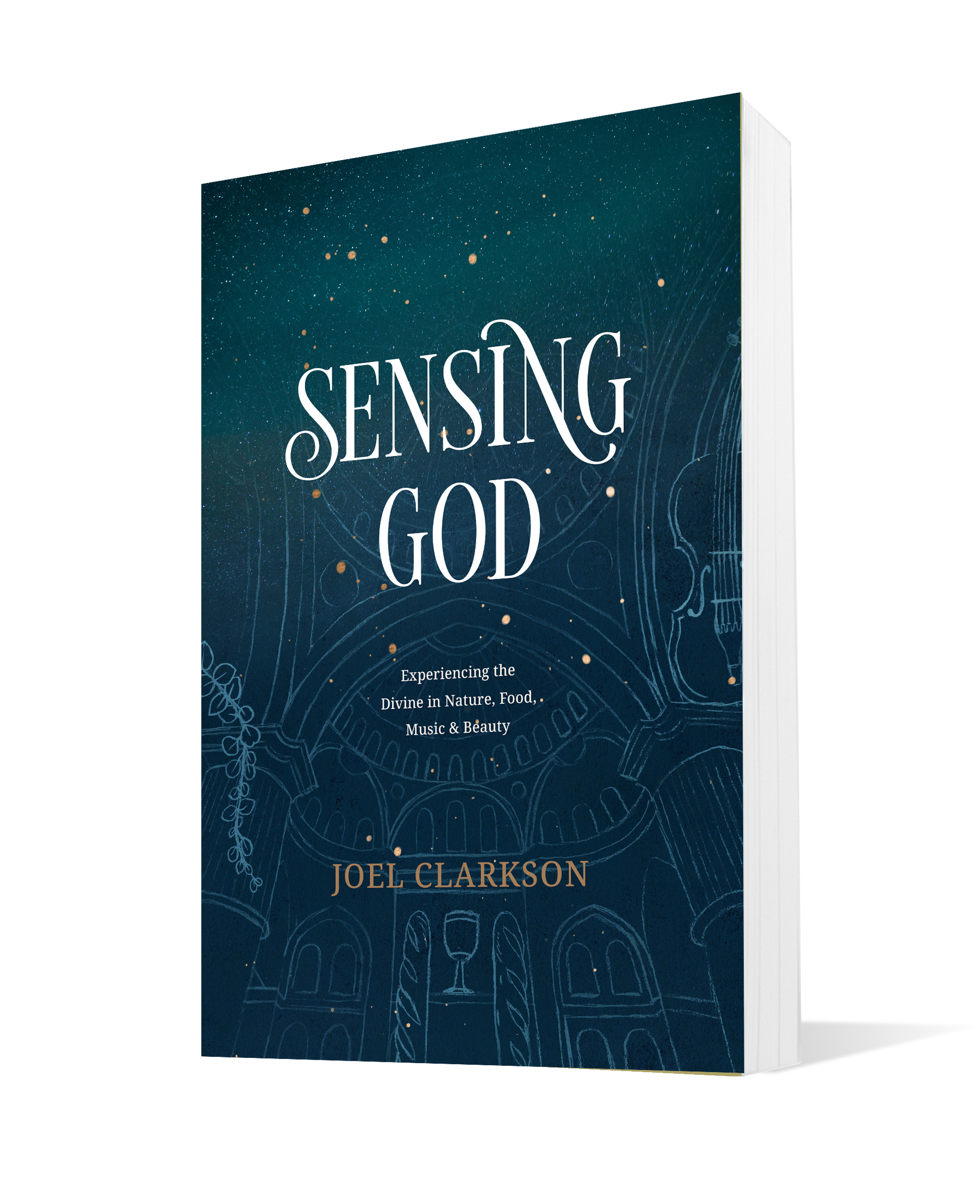We are created to experience God through our senses, and in that encounter, to come to know Him better and grow in love. And yet, even our senses themselves can become overloaded; the windows of our souls become covered in grime, and without realizing it as it happens, we lose our grasp of the vision of the good, the true, and the beautiful. Whether through the negative habits of sin, or perhaps even more often, through the glut of filling our lives with too much busyness, too many experiences, stretching ourselves thin among the endless demands of our lives, even when those demands are worthy and good, we find that the world becomes separated from us, difficult to access. We find that we are distanced from the very world with which our senses are made to come into contact.
It is into this distancing that the gift of fasting becomes a way forward for us, a way of return to that contact with the holy through our senses. Fasting is the ancient practice of temporarily stripping away the things in our lives that demand our attention and affection for the sake of prayer and reflection. Perhaps the most common spiritual discipline, it is enshrined in the rhythms of the liturgical church year no less than twice: during the seasons of Advent, which leads up to Christmas, and Lent, which leads up to Easter. It is both one of the oldest spiritual disciplines in the church and one of the most misunderstood. It is easy to understand why: By taking away food, drink, and other good things that become pathways for our senses, how can we think of fasting as anything less than a disdain of the senses, a belief that somehow, at heart, they are wrong and will mislead us? It could almost seem as if, afraid that we will become too indulgent, the church institutes these seasons to diminish the senses, to make sure we don’t give them too much precedence.
The tradition of fasting in Christian practice tells a very different story. Far from being a rejection of the senses, fasting intrinsically recognizes the power of the senses in our lives and how they shape us and form our experience of reality. The various sensory points of contact with the world, whether good or evil, do not simply engage our senses. They engage our hearts through our senses. Our senses are channels, conduits of God’s revelation of Himself in the created world, and reveal to our hearts what our minds alone cannot comprehend or make sense of. Our senses are our only doorway to the world as it is given to us through the tangible and the experienced. Not only do our senses afford us an encounter with God through the tangible aspects of the world around us, as we have discussed in so many different ways in this book so far; even the knowledge and understanding of who God is, and who Jesus is as a revelation of that God, are received through our senses. It is with our ears that we hear the good news of the gospel preached, and our eyes that we read the words of Scripture. We receive testimony of the spirit of Jesus living in others through observation of their actions, the way they treat others and the world around them. Without our senses, we would be helpless to know God at all. The disposition of our senses, their health and vitality at any given point in our lives, is of the utmost importance because our ability to receive God’s goodness depends on their continued conveyance of that goodness.
Fasting gives high honor to the way in which the senses direct our desires: It expresses the peril of a wrongly trained sense to lead us into deeply harmful and broken practices, and it equally acknowledges the power of the redeemed senses to be used to heighten one’s awareness of God and cultivate their desires to participate in His life. To fast is not to reject the senses, but to reform them, to reorient them and allow them to be retrained. It is, paradoxically, a radical embrace of the senses, cleaning away the grimy film that gathers on the windows of our hearts, so that we can see again with a renewed inner eye and recognize the luminance shining out of all things once more.
Orthodox theologian and musician Peter Bouteneff beautifully encapsulates this sensibility while discussing the most important fasting season in the Orthodox Church calendar, the six weeks leading up to Holy Week and Easter:
Great Lent provides a period of vigilance that will rightly prepare for the genuine and enduring joy of redemption. It is a chosen darkening of the night in order to brighten our perception of the stars. It is no exaggeration to say that nearly every spiritual discipline, Eastern and Western, promotes similar kinds of renunciation in order to redirect and sharpen the senses.[i]
Bouteneff’s elegant reference to stars captures the way in which refraining from sensory engagement heightens our awareness of the one in whom “was life, and that life was the light of all mankind.”[ii] Both of the regular seasons of fasting in the church express this: In Advent, fasting makes us more able to enter expectation for the dawn of Christ into the world at Christmas, just as Zachariah says in Luke, “Because of God’s tender mercy, the morning light from heaven is about to break upon us, to give light to those who sit in darkness and in the shadow of death”;[iii] and in Lent, it makes us more able to enter the darkness of that shadow, awaiting, like the disciples, the return of Christ, who destroys night forever in the morning light of His resurrection at Easter: “Weeping may last through the night, but joy comes with the morning.”[iv]
In this darkening of our senses that brightens the star of Christ, as Bouteneff suggests, we become aware of another resonance of fasting, one that doesn’t imply the mere the removal of sensory aspects but one which brings us—through denial, through the loss of something meaningful and good in our lives—into a profound sensory experience that heightens our desire for Jesus.
[i] Peter C. Bouteneff, Arvo Pärt: Out of Silence (Yonkers, NY: St Vladimir’s Seminary Press, 2015), 143.
[ii] John 1:4, niv.
[iii] Luke 1:78-79.
[iv] Psalm 30:5.



